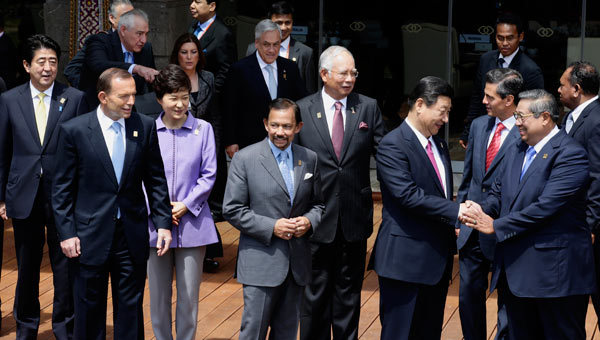As China rises adjustments in relations with international institutions and neighbors must be carefully handled
The periphery of the United States is simple and easy to deal with as it is bound by the Atlantic Ocean on the east and the Pacific Ocean on the west. This has been the geopolitical condition for its long hegemony over the world. So periphery diplomacy for the US, if not of little significance, is a matter of limited concern in its overall map of diplomacy.
In contrast, China has a surrounding environment that is much more complicated and full of uncertainties. If not the top priority, periphery diplomacy is of vital importance to China's diplomatic strategy. Establishing a good periphery is vital for China's continued development, and a good surrounding environment will serve as a springboard for China to go global and enable it fulfill its role as a responsible world power as other countries expect.

President Xi Jinping and his Indonesian counterpart Susilo Bambang Yudhoyono exchange greetings as they join other APEC leaders for a group photo in Bali, Indonesia, on Tuesday. [Photo / Agence France-Presse]
A big tree invites the wind. China's new leaders are aware of the impact its rise is having on neighbors. Even as China follows the road of peaceful development, some other countries are still accustomed to being suspicious of its intentions.
And while striving for national reinvigoration, China's leaders must carefully handle the adjustments in its relations with international institutions and relations with neighboring countries. These adjustments are the biggest challenge China has faced since it began its journey of national rejuvenation, and will remain a challenge throughout the process of China's rise. As those with vision and insight have pointed out, China's rise has advanced from a period of preparation to one of friction, during which more problems and issues will arise.